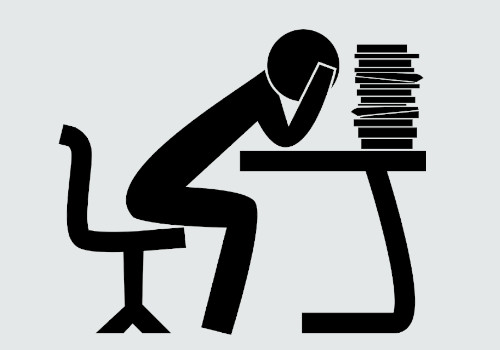10 Early Warning Signs and Symptoms of IBS Attack

What are the symptoms of ibs attack? IBS or Irritable Bowel Syndrome is a digestive-related condition and also being called irritated colon or spastic colon. Nowadays more than 18% of generation has been suffering from it all over the world. It can be longtime trouble that can stay with you and quite irritating and disturb the whole life.
IBS attack can cause excess production of gas and bloating, and many other prior symptoms are also available that indicates the issue.
The food that we eat regularly has a significant impact on our life and bowel activity.
In This Article
What causes Ibs?
- Eating too fast or in big portions.
- Consuming such food that is gastric
- Excess consumption of tea and coffee
- Poor lifestyle
- Family history of IBS
Symptoms of Ibs Attack
Here we are listing 10 signs and symptoms of IBS attack in men and women and prevention.
1. Excessive Bloating

People with symptoms of ibs attack feel more bloated and full after eating average food portions. The studies are also agreed that gut becomes full of gas which is a very nagging and irritating condition.
Irritable bowel generates excess gas that is the primary cause of bloating, and your stomach looks rounder than usual.
2. Diarrhoea
Diarrhoea is the main symptom of IBS due to the gut muscles contract more than usual. The gut activity can be slow down or speed up, and rapid gut movement causes diarrhoea.
People without IBS have regular bowel activity that gets calm down frequently, but if you are suffering from IBS attack, it may be different and cause diarrhoea and constipation.
The symptoms may vary from person to person acceding to their health chart and habits.
3. Gas
The researchers have announced that people with IBS have more gut bacteria that produce toxic chemicals and components that are the primary cause of excess gas in the stomach.
You may feel disinterest in appetite and gassy that won’t be easy to pass away and heaviness in the stomach.
4. Ibs with Constipation
IBS can also cause constipation, and a person feels difficulty while passing stool. The stool can be hard and dry, and one may feel pain while passing the stool.
Constipation can come and go with time but become a constant issue if you have IBS attack. Try to drink more water and add soluble fibre to the diet.
ALSO READ: How to Cure Constipation Quickly and Naturally
5. Pain and Cramping
The rapid contractions and activities in the gut may produce pain and cramps in the lower abdomen area.
The excessive gas and bloating make your stomach oversensitive and the muscles contract more than usual.
The condition of IBS attack also triggers brain functioning.
6. Fatigue

A study done on volunteers has revealed that most of the people with IBS facing fatigue without doing any heavy work or physical workout.
People with IBS attack were much exhausted, and they were continually feeling difficulty in sleeping and disturbance during sleep, and the next day, they felt tired.
In some cases, they found people with IBS also fighting with insomnia and can’t even figure out their cause of insomnia.
7. Stress
Irritable bowel directly influences the brain, and you may feel stress and lack of energy in the body. People with IBS attack may feel brain fog sometimes and difficulty concentration.
The whole body can be exhausted and tired, with no energy and disinterest in work.
The studies also revealed that IBS generates such factors in the body that are related to depression and stress and excess gas both are very friendly with each other. This is the important symptoms of ibs in adults.
8. Joint Pain
IBS not only affects the stomach but affects joints too. According to Ayurveda, if you have too much gas or Vata in the body, and it stays for a long time without treatment, it can harm the joints.
In severe cases of IBS, the experts found that people who were suffering from IBS for a long time also complained about pain in the joints.
9. Food Intolerance
The experts found that more than 60% of people who have IBS were specific food intolerance that increases their problem more than average. We can’t consider this as a food allergy, but yes, there are side effects that they noticed every time.
The food includes in the list is garlic, onions, beans, chickpeas, nuts, lentils, fried food, etc.
10. Changed Bowel Activity
You may also spot sudden changes in bowel activity. It may be slow down sometimes or can be increased.
IBS can cause slow movement of stool that can make the intestine dehydrated due to it absorbs the water inside the body and if you are drinking less water if may be harmful.
You can also trigger mucus while passing the stool that you never face on common constipation. This is the main symptoms of ibs disease.
How to Prevent Ibs
Dos
✓ It would help if you always stayed aware of particular foods that can worsen the symptoms of IBS.
✓ You can even make a chart of the food that is more beneficial for you and you feel less-bloated and less-irritable bowel system.
✓ You must add such food that is high in fibre and low in fat. People with IBS attack were consuming high-fat food with high calories, and they suffered a lot.
✓ You must avoid such foods that producers enough gas and provoke acidity and bloating.
✓ Some vegetables like cabbage, broccoli, cauliflower, okra, are not good great in IBS and all types of beans and lentils are also included in the list.
✓ If you feel uncomfortable and no positive results in the symptoms, you must contact an expert and elaborate on the symptoms.
Don’ts
✓ Don’t switch to dairy products as they can more irritate the bowel and also avoid caffeinated beverages and cold drinks.
✓ Avoid the excess sugar intake in the diet and add natural food items and use honey for natural sweetness.
Frequently Asked Question & Answers-
Q. How do you know you have IBS?
A. The major signs that we can know have IBS are stomach pain and changes in intestinal behavior. This may involve constipation, diarrhea, or both. You can get cramps in your stomach or feels that your bowel movement isn’t over.
Q. What foods trigger IBS attacks?
A. Foods that can trigger IBS are Fried and fatty, Dairy products, large meals, Food and beverages containing chocolate, tobacco, caffeine, fructose or sorbitol, Carbonated beverages.
Q. How long does IBS last?
A. Usually, the effects of IBS is worse after eating. Most people can experience a flare-up of problems that lasts from 3-5 days, after which the symptoms improve or slowly disappear.
In Closing
Understanding the symptoms of IBS in women and men for both can make you aware and help to get the right treatment. Changing lifestyle and eating habits can naturally provide relief.
If you see something is wrong, you must consult a doctor, and some medicines or probiotics can help you out.
We hope this information on symptoms of ibs Attack in adults would be helpful for you and if you have any suggestions or any doubts in mind, please share it with us.
Reference-
- The epidemiology of irritable bowel syndrome[1]
- Diet in irritable bowel syndrome[2]
- The global prevalence of IBS in adults[3]
- Stress and sleep quality in doctors working on-call shifts are associated with functional gastrointestinal disorders[4]
- Symptoms discriminate irritable bowel syndrome from organic gastrointestinal diseases and food allergy[5]
- Intestinal secretory mechanisms in irritable bowel syndrome-diarrhoea[6]
- Irritable bowel syndrome subtypes according to bowel habit[7]





